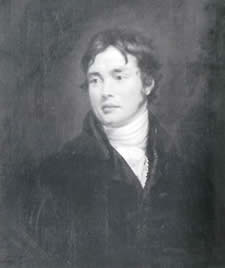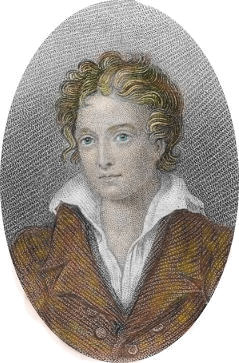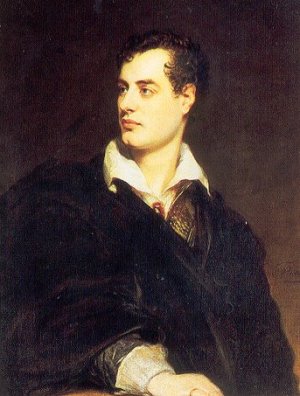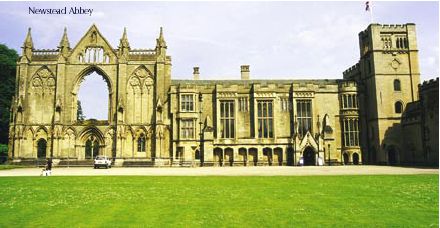Samuel Taylor Coleridge

Samuel Taylor Coleridge was another important influence in Mary Shelley's life. Coleridge was a friend of her father's who was often at the house when she was growing up. He may well have been her first model of poetic temperament. Coleridge was keenly interested in the nature of imagination, consciousness and dream, and explored these topics extensively in his poetry, prose, and public speaking.
Percy Bysshe Shelley
 After being sent down from Oxford for writing an anti-Christian tract, Percy Bysshe Shelley (1793-1822) met and married Harriet Westbrook, eloping with her to Edinburgh when he was 18 and she was 16. He fought bitterly with his father and lived the life of a penniless vagabond even though he was the son of an aristocrat. In 1812 he met the radical philosopher William Godwin and became his student.
After being sent down from Oxford for writing an anti-Christian tract, Percy Bysshe Shelley (1793-1822) met and married Harriet Westbrook, eloping with her to Edinburgh when he was 18 and she was 16. He fought bitterly with his father and lived the life of a penniless vagabond even though he was the son of an aristocrat. In 1812 he met the radical philosopher William Godwin and became his student.
In 1813 Shelley published his first important poem, Queen Mab, the philosophical narrative of a disembodied soul, guided by the fairy queen Mab who reveals to him a woeful past, a dreadful present, and a utopian future. Mab predicts the goddess Necessity will see to it that all human institutions wither away and that humanity returns to its natural state of goodness. The poem was considered seditious at the time and Shelley circulated it privately.
Drifting from Harriet, he fell in love with Godwin's daughter, Mary. They fled to France. Their behavior incensed Godwin and led many in London to shun them. When they returned, they evaded creditors and detractors alike until leaving England again and meeting Lord Byron in Switzerland for the famous summer of 1816 (when Frankenstein was born). About a year later Harriet drowned herself in a fit of despair and Shelley and Mary married. Shelley was denied custody of his two children with Harriet, an almost unprecedented occurrence. In 1818, the couple left England a third time, joining Byron in Italy where they lived until Shelley drowned in 1822 off the Italian coast.
Shelley was a brilliant thinker and an avid student; according to legend, he read when he sailed and even when he walked. He loved science, alchemy, Gothic terrors and Greek philosophy. He was especially attracted to Plato and the neo-Platonists. He believed in the redeeming power of love. He was a ceaseless seeker of truth, a nature boy and mystic who lived partly in the world of everyday experience and partly in a self-created world of poetry, beauty, and reverence.
On July 8, 1822 Shelly was caught in a sudden storm while sailing. He is buried in Rome next to his young son William, and the poet, John Keats. Byron said of Shelley, “He was, without exception, the best and least selfish man I ever knew. I never knew one who was not a beast in comparison.” Shelley's poetry is considered some of the best ever written.
Mother of this unfathomable world!
Favour my solemn song, for I have loved
Thee ever, and thee only; I have watched
Thy shadow, and the darkness of thy steps,
And my heart ever gazes on the depth
Of thy mysteries. I have made my bed
In charnels and on coffins, where black death
Keeps record of the trophies won from thee,
Hoping to still these obstinate questionings
Of thee and thine, by forcing some lone ghost
Thy messenger, to render up the tale
Of what we are...
—Percy Bysshe Shelley
Lord Byron
 Perhaps the first sex symbol superstar, Lord Byron (1788-1824) was the quintessential English poet. Passionate, moody, willful and remorse-torn, he was perceived in his lifetime as an unrepentant rogue and scandalous genius. His best work is his brilliant, ironic satire. A witty conversationalist with a hint of Scottish brogue, Byron was the archetypal rebel. When in good humor he was tolerant, gregarious, and lively. When in bad humor, he was sullen and mean.
Perhaps the first sex symbol superstar, Lord Byron (1788-1824) was the quintessential English poet. Passionate, moody, willful and remorse-torn, he was perceived in his lifetime as an unrepentant rogue and scandalous genius. His best work is his brilliant, ironic satire. A witty conversationalist with a hint of Scottish brogue, Byron was the archetypal rebel. When in good humor he was tolerant, gregarious, and lively. When in bad humor, he was sullen and mean.
He was Nietzsche’s Superman—the great hero who stands outside the jurisdiction of the ordinary criteria of good and evil. Bertrand Russell describes his attitude as one of “titanic, cosmic, self-assertion.” His aloofness, however, masked deep pain. Part of his tremendous allure for the men and women who were drawn to him, was the belief each carried that Byron could and would dismantle his mask and let them into his remarkably vulnerable presence—precious few ever accomplished it. He said of himself: “If I don’t write to empty my mind, I go mad.”
The author of Don Juan was a sexual being. It is said there is proof he had sex with over 300 women, one of whom happened to be his half-sister, Augusta. He was also attracted to young men and there is much speculation about the nature of his intimacy with his own sex. He fled England in the midst of a vicious divorce that led to rumors both of his affair with Augusta and hints of homoerotic behavior.
Byron was also lame. His right foot turned in, his calf was apparently deformed. Some say clubfoot, others say infant polio. It’s not clear what it was, but it was a defining characteristic and one that, especially as a child when it was approached with torturous brutality by doctors, caused him much pain, both physically and psychologically. Perhaps in compensation, Byron was an excellent athlete in every way he could be: he played cricket, was an expert boxer, fencer and horseman, and was an especially powerful, long-distance swimmer.
Byron died in 1824 in Greece where he'd joined their fight for independence against the Turks. In England he is remembered as one of the greatest poets who ever lived, in Greece he's celebrated as a revolutionary freedom fighter.

Newstead Abbey, once Byron's estate, is now a museum.